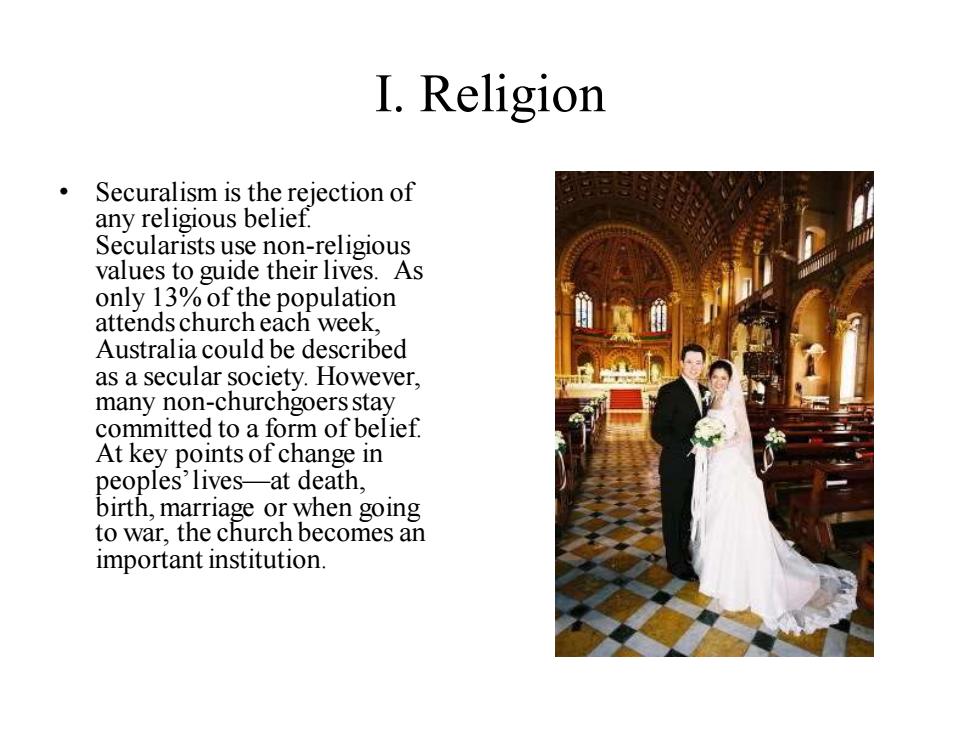
I.Religion Fundamentalism and Evangelicalism Fundamentalism is often a feature of a society in a rapid state of change.When cultural values seem to be shifting too quickly a form of cultural anxiety can occur.For some people there is a need to reaffirm the values of one's earlier life. Fundamentalism is not confined to any one religious belief.In Australia,there are fundamentalist forms of Protestantism, Catholicism,Islam,and Judaism.Fundamentalists want to maintain or to recreate what was (or what was thought to have been)the fundamental values of an earlier culture
I. Religion • Fundamentalism and Evangelicalism Fundamentalism is often a feature of a society in a rapid state of change. When cultural values seem to be shifting too quickly a form of cultural anxiety can occur. For some people there is a need to reaffirm the values of one’s earlier life. Fundamentalism is not confined to any one religious belief. In Australia, there are fundamentalist forms of Protestantism, Catholicism, Islam, and Judaism. Fundamentalists want to maintain or to recreate what was (or what was thought to have been) the fundamental values of an earlier culture

I.Religion Securalism is the rejection of any religious belief. Secularists use non-religious values to guide their lives.As only 13%of the population attends church each week. Australia could be described as a secular society.However, many non-churchgoers stay committed to a form of belief. At key points of change in peoples'lives-at death. birth,marriage or when going to war,the church becomes an important institution
I. Religion • Securalism is the rejection of any religious belief. Secularists use non-religious values to guide their lives. As only 13% of the population attends church each week, Australia could be described as a secular society. However, many non-churchgoers stay committed to a form of belief. At key points of change in peoples’ lives—at death, birth, marriage or when going to war, the church becomes an important institution